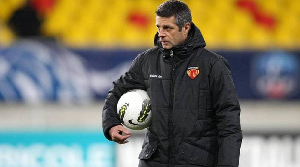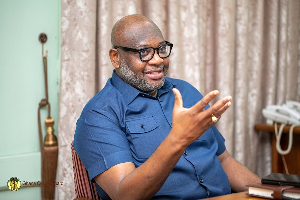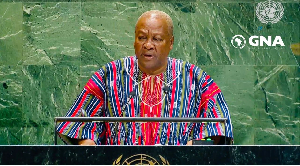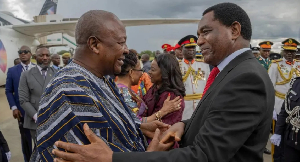Massively multiplayer online (MMO) games are now an established segment of the global entertainment industry.
In MMO games, gamers create alter egos in virtual worlds, many of which are based on iconic, pop culture intellectual properties such as The Lord of the Rings, Star Wars, Star Trek and Conan the Barbarian. One popular game, World of Warcraft, boasts several million worldwide subscribers.
There is, however, another massively multiplayer game unfolding concerning the future governance of the Internet as a whole. The name of this game is rule making.
Our entire social world (physical and virtual) is made possible by sets of written and unwritten rules that direct our behaviour, shape our identities and define basic categories that determine the horizons of the possible. For example, the rules of chess define the objective or purpose of the game, establish conditions for victory and simultaneously empower and constrain the player to move pieces in various ways.
These rules shape players’ behaviour in ways they may not realize. It would be strange, for example, to imagine a chess player threatening an opponent. Even the thought of doing so simply wouldn’t occur to most players and, if suggested, would likely be summarily dismissed.
Like chess, rule making in diplomacy and global governance is a social game governed by rules. This rule-making game has extremely high stakes. The power and durability of rules ensure that the creation, alteration and interpretation of social rules are some of the most intensely political human activities. The power to write the rules amounts to ruling over others.
The Internet is an entirely new social domain that disregards borders and is governed by an incomplete set of rules that has evolved over time in a somewhat chaotic manner. In historical terms we are still, essentially, present at its creation. In the decades since its initial incarnation as ARPANET, and in the shorter period of time since its widespread commercialization, the Internet has been loosely governed by a series of mostly voluntary mechanisms. Certain crucial rules are not in written form.
For example, Internet service providers (ISPs) operate largely on the basis of “settlement-free peering” — agreements to allow traffic to cross between their proprietary networks without data charges. These peering agreements date from the earliest days of the Internet and are, almost always, unwritten.
A breakdown in peering agreements would drastically diminish the functionality of the Internet.[1] Without them, each ISP would be a self-contained online space able to offer its users only the content hosted on its own physical network. Other critical rules (for example, rules governing the legality of cyber attacks) do not yet exist.
While portrayals of the Internet as a digital Wild West are often overblown, it is fair to say that the decisive battles for rule over the Internet have yet to be fought.
The battles, however, are looming; the players are deploying their forces and the field of battle is taking shape. Internet governance will be discussed, debated and, perhaps, written in a small set of traditional and non-traditional global governance venues.
The oldest of these is the International Telecommunications Union (ITU). Founded in Paris in 1865 as the International Telegraph Union, by 1947 it had assumed its present name and become a specialized agency of the United Nations.
It plays a vital role in allocating radio spectrum and satellite orbits, ensuring the compatibility of communication networks in different countries, and in expanding worldwide access to modern communications. The ITU will host an international conference in Dubai this December, where states and other interested parties will negotiate to update a key treaty called the International Telecommunications Regulations.
A coalition that includes China, Russia and several Arab states is attempting to amend the treaty to allow for increased monitoring of Internet transmissions and wider authority to block politically sensitive content.
The Internet Governance Forum (IGF) is also part of the UN system; it consists of a small secretariat that facilitates the IGF’s main role as a forum for dialogue. In the IGF, all participants — governments, corporations, academics and non-governmental organizations — have equal status. While it lacks decision-making authority, the IGF has an important role to play in ensuring all voices are heard.
Finally, the Internet Corporation for Assigned Names and Numbers (ICANN) carries out many of the crucial day-to-day tasks that ensure the Internet operates. It administers the Domain Name System (commonly referred to as DNS) and the Internet Protocol address (or IP address) system.
Together, these systems act as a phone book for the Internet, ensuring that traffic is routed to the proper destination. Although ICANN has an international board and operates transparently, it is incorporated as a non-profit organization in the United States. Its legal jurisdiction has caused unease in non-Western states and created an appetite for a more genuinely global vehicle for governing the Internet.
The power to write the rules amounts to ruling over others.
The key Internet governance issues — privacy, freedom of speech, intellectual property and security — have created surprising coalitions of strange bedfellows. While industrial democracies attempt to balance legitimate security concerns with critical civil liberties, other states (most notably Russia, China and a coalition of Arab states) are eager to ensure the security of their governing regimes and to correct what they view as a Western stranglehold over existing Internet governance arrangements.
Civil society activists advocate for the maintenance of privacy and freedom of speech, but so do increasingly sophisticated transnational criminal organizations that seek to remain in the shadows. Intellectual property concerns unite authors and artists with large corporations, often against civil society activists and the governments of developing states.
Given the array of complex issues, and the diversity of perspectives and interests, it is certain that Internet governance will take shape slowly and fitfully. Success — defined in terms of maintaining the freedom, vitality, security and global interoperability of the Internet — is not assured.
The Internet may be made less free by rules curtailing freedom of expression and legitimate expectations of privacy. It also may be made less secure by escalating cyber warfare or by the actions of extremists. Finally, there is a possibility the Internet will fragment, as groups of states and other actors respond to governance deadlock by creating new venues for rule making that result in multiple Internets.
The critical first step is to recognize, and effectively prepare for, the process of rule making that has already begun. Merely showing up is not enough. The rules are made by those who know how the rule-making game is played.
This article was first published September 21, 2012
About the Author
Mark Raymond, former CIGI Research Fellow, Global Security & Politics.
Series: Governing The Internet: Chaos, Control or consensus.
Opinions of Tuesday, 27 September 2016
Columnist: Mark Raymond















